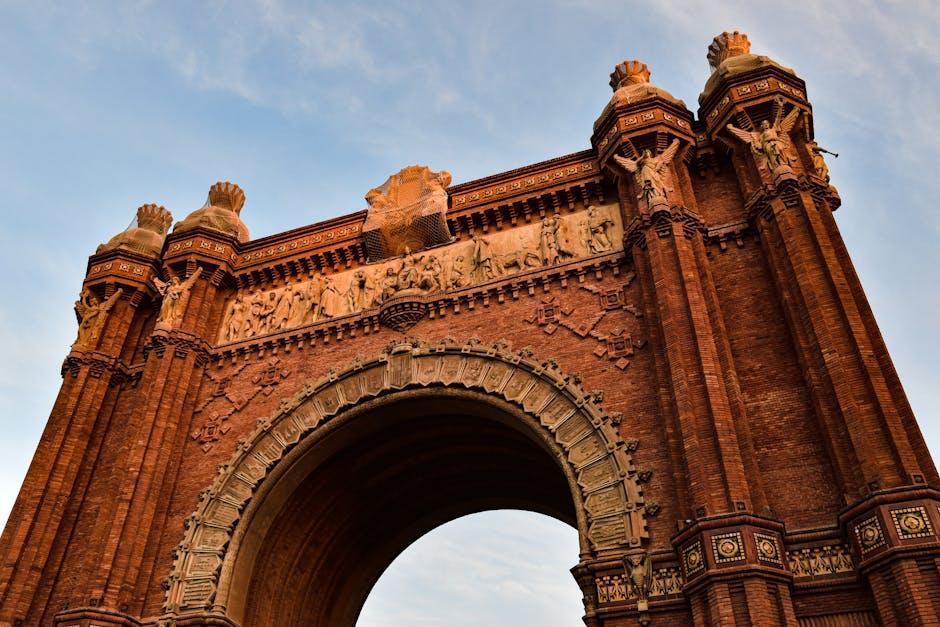Nestled in the northeastern corner of Spain, with its vibrant capital of Barcelona, Catalonia has long been a tapestry of culture, innovation, and spirited political activism. This autonomous community, with its own language, history, and traditions, is not just a tourist haven but also a pivotal center of political dialogue and debate that resonates through the corridors of power across Spain. As the Catalan drums beat to the rhythm of regional elections, their echo carries a profound significance far beyond the serene peaks of the Pyrenees and the bustling streets of its coastal cities.
The importance of these regional elections transcends local politics, extending its reach into the very heart of Spain’s future. It’s a dance of democracy where every ballot cast is a whisper into the ear of the nation, hinting at the shifts in political landscapes, shaking the status quo, and sometimes, heralding transformative changes. This isn’t merely a local affair; it’s a pivotal event that offers a glimpse into the broader Spanish polity’s evolving dynamics, challenges, and the potential pathways that lie ahead.
In this nuanced ballet of politics, each move, each decision, speaks volumes about the intricate relationship between Catalonia and the rest of Spain. These elections are more than just a test of local governance; they are a barometer for the political climate across the country, a signal of potential changes in national politics, and an indicator of the strength and direction of separatist sentiments within Catalonia itself.
Therefore, as Catalonia stands on the threshold of another electoral cycle, the question looms large: What does this mean for Spain’s future? This article delves into the heart of why these regional elections are a matter of national importance, unpacking the layers that make this event not just a regional headline, but a national narrative that could shape the contours of Spanish politics for years to come.
Catalonia’s Ripple Effect on Spain’s Political Landscape
The political tremors set off by regional elections in Catalonia often send shockwaves far beyond its picturesque borders, impacting the broader tapestry of Spain’s political landscape. These elections are not just a matter of local governance but are a litmus test for the sentiments and ideologies that shape Spain’s future. The autonomous community, with its distinct language, culture, and history, has been at the heart of contentious debates on sovereignty and self-determination. The outcome of regional polls can tilt the scales in ongoing discussions about federalism, autonomy, and the distribution of power in Spain, highlighting the interconnectedness of regional issues with national politics.
- The influence of Catalan parties on national coalitions is a critical factor that underscores the importance of these elections. Given the fragmented nature of Spain’s parliamentary system, parties from Catalonia often hold the balance of power, making or breaking national governments. This dynamic ensures that issues pertinent to Catalonia command attention on the national stage, pushing parties to negotiate and compromise, often reshaping policy priorities at the highest levels.
- Economic implications are another crucial aspect. Catalonia is an economic powerhouse within Spain, contributing significantly to the country’s GDP. Political instability in the region, stemming from unresolved disputes or shifts in governance, can have far-reaching effects on Spain’s economic health and investor confidence. Thus, the outcome of Catalonia’s regional elections can directly influence Spain’s economic planning and fiscal strategies.
| Year | Leading Party | National Impact |
|---|---|---|
| 2021 | Pro-independence | Increased calls for referendum |
| 2023 | Unionist | Strengthened federal stance |
By closely examining the political interplay between Catalonia’s regional elections and Spain’s national scene, one grasps the profound implications these local contests have on shaping the nation’s trajectory. They are a reflection of the broader political, economic, and social currents flowing through the country, making them a subject of keen interest to policymakers, investors, and citizens alike.
Diving Deep into the Economic Impact of Catalonia’s Regional Choices
The economic landscape of Spain is intricately tied to the decisions made within its autonomous communities, and Catalonia, as one of the wealthiest and most industrially advanced regions, plays a pivotal role in this dynamic. Catalonian regional policies have a mirrored effect on the national economy, influencing everything from investment influx to the labor market. For instance, the region’s push towards technological innovation and digital infrastructure not only positions it as a competitive European hub but also bolsters Spain’s appeal to international investors. Similarly, Catalonia’s stance on environmental policies can set a benchmark for sustainable development across Spain, driving nationwide initiatives that could enhance long-term economic health.
In addition, the fiscal policies embraced by the Catalonian government directly affect the financial equilibrium of the entire country. Given the region’s substantial contribution to the national GDP, policy decisions related to taxation, public expenditure, and economic development strategies in Catalonia have far-reaching implications. Notably, the mechanisms of fiscal redistribution from wealthier regions like Catalonia to less affluent areas in Spain stir substantial debate regarding equity and autonomy. These economic choices not only reveal the complexities of regional autonomy within a national framework but also highlight the importance of collaboration and balance in achieving economic prosperity for all of Spain. The table below provides a simplified view of how Catalonia’s regional choices impact Spain’s economic markers.
| Economic Indicator | Impact of Catalonia’s Choices |
|---|---|
| Investment Attraction | Enhanced by technological and digital infrastructure initiatives |
| Labor Market Dynamics | Influenced by local policies, potentially leading to lower unemployment rates |
| Sustainable Development | Set benchmarks for national environmental policies |
| Fiscal Redistribution | Debates on equity and autonomy affect national fiscal policies |
Exploring the Cultural and Social Bonds That Unite or Divide
The nuances of regional elections, particularly in areas with strong identity sentiments like Catalonia, stretch far beyond the confines of political maneuvering; they touch the very soul of national unity and challenge our conventional understanding of cultural cohesiveness. The situation in Catalonia is not just a matter of political independence or autonomy—it’s about understanding the complex web of relationships that binds a nation together. These elections are a litmus test for Spain’s ability to embrace diversity within unity, to recognize that the strength of a nation lies not just in the sameness of its people, but in their differences. It’s a lesson in the art of balancing regional identity with national integrity, illustrating how deeply intertwined cultural identity and political power can be. The outcomes influence not just policy directions, but the very narrative of coexistence within Spain.
In the heart of these elections lie conflicting narratives of history, language, and identity, each clamoring for recognition and respect. Catalonia’s quest for greater autonomy—or perhaps even independence—underscores a broader dialogue about what it means to belong to a nation. Does unity necessitate uniformity, or is there room for a mosaic of cultures and languages within the tapestry of a country? These are the questions that the regional elections in Catalonia pose to the Spanish state and its people. Consider the following table, which highlights the core issues at stake:
| Issue | Impact on Spanish Unity |
|---|---|
| Cultural Identity | Challenges and enriches the national narrative |
| Political Autonomy | Tests the limits of regional self-governance within a unified state |
| Language Rights | Emphasizes the linguistic diversity as an asset rather than a barrier |
| Economic Contributions | Reframes debates on fiscal redistribution and equity |
Ultimately, the significance of Catalonia’s regional elections transcends political boundaries, inviting a reassessment of how we perceive nationhood in the 21st century. It’s about finding the delicate balance between acknowledging the unique cultural contributions of each region while fostering a sense of shared destiny among all Spaniards. This is not just Spain’s challenge—it’s a reflection of a global struggle to recognize and celebrate diversity within nation-states. How Spain navigates this path will offer valuable lessons to the world on bridging divides and building a future that honors both unity and diversity.
Toward a More Unified Future: Recommendations for Bridging the Gap
In light of the recent regional elections in Catalonia, it’s imperative to address the steps towards healing the fractures between Catalonia and the rest of Spain. The path to unity manifests through understanding, negotiation, and concessions from all sides. Catalonia’s autonomy and its distinct cultural and linguistic identity have long been sources of discord, but they also offer a unique opportunity for Spain to embrace diversity as a strength rather than a weakness. Acknowledging and valuing Catalonia’s contributions to Spain’s rich mosaic can foster a sense of belonging and inclusivity among the Catalan people.
Beyond recognition and respect, there are practical steps that can be taken to bridge the gap. Formulating policies that promote economic equity across regions can alleviate some of the economic disparities that fuel tensions. Moreover, enhancing the level of autonomy in certain areas, such as education and healthcare, may offer a way to demonstrate trust and respect for Catalonian governance. Finally, encouraging bilateral dialogues aimed at understanding and addressing specific grievances can pave the way for a more harmonious coexistence. Below is a table highlighting key recommendations for fostering unity:
| Area of Focus | Recommendation |
|---|---|
| Economic Policies | Implement measures to ensure equitable distribution of resources. |
| Autonomy in Governance | Increase the degree of self-governance in sectors like education and health. |
| Dialogue and Reconciliation | Create bilateral forums for open dialogue and conflict resolution. |
Final Thoughts
As the sun sets over the picturesque landscapes of Catalonia, casting long shadows on the vibrant streets of Barcelona, and the serene views of the Pyrenees, it’s clear that the region is not just a treasure trove of culture and history, but also a battleground for ideals that resonate far beyond its borders. The ripples created by regional elections in Catalonia extend into the broader canvas of Spain’s political, cultural, and economic future, weaving a complex tapestry of unity, autonomy, and identity.
To some, these elections may seem like mere local affairs, but their outcomes hold the potential to either bridge divides or deepen fissures within this storied nation. They serve as a litmus test for broader sentiments, challenge prevailing narratives, and dare to ask questions about what the future of Spain should look like in an ever-evolving global context. As Catalonia charts its course, it does not do so in isolation; it beckons the rest of Spain to ponder on shared paths, divergent futures, and the collective wisdom needed to navigate the uncertainties of tomorrow.
In essence, the significance of Catalonia’s regional elections transcends the immediate political landscape, offering a glimpse into the soul of Spain. They are a dialogue—a continuous conversation between the past and the present, tradition and innovation, unity and diversity. As this chapter in Spain’s rich history unfolds, it invites observers, both local and global, to reflect on the enduring power of democracy, the importance of regional voices in shaping national conversations, and the intricate dance of progress and preservation.
Thus, while the ballots may be counted and the results tallied, the story of Catalonia and its impact on Spain is far from over. It is but a vibrant thread in the broader tapestry of a nation striving to reconcile its diverse voices with a common future. As we stand on the brink of this evolving narrative, let us watch with keen eyes, listen with open hearts, and engage with the profound questions that these elections pose. For in the answers, we may just find the keys to a future that honors the rich mosaic of Spain’s heritage, while boldly embracing the promise of tomorrow.




